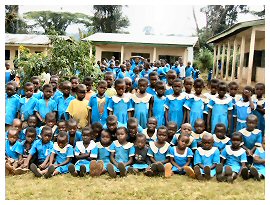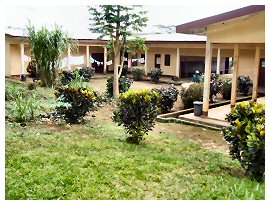CAMEROON has been described in travel literature as ‘all Africa in miniature’. It has desert regions, tropical rainforest, savannah, and has a coastline and mountainous regions. Geographic diversity is also reflected in the variety of plant and wild life to be found there. The country also has considerable mineral and oil resources.
Compared to other African countries, Cameroon enjoys relatively high political and social stability. This has permitted the development of agriculture, roads, railways, and large petroleum and timber industries. Nevertheless, large numbers of Cameroonians live in poverty as subsistence farmers.
Most children have access to free, state-run schools or subsidised, private and religious ones. The educational system is a mixture of its British and French precedents with most instruction in English or French. Cameroon has one of the highest school attendance rates in Africa. Girls attend school less regularly than boys because of cultural attitudes, domestic duties and early marriage.
The quality of health care is generally low. Outside the major cities, facilities are often poorly equipped. Endemic diseases include: malaria, meningitis, filariasis, river blindness, and sleeping sickness. The HIV/AIDS is estimated at 5.4%. Traditional healers remain a popular alternative to Western medicine: one was interviewed in our survey.
Cameroon is a good country to engage with traditional Africa, to engage with African culture help the people compete with western commerce, and do so without losing their special identity.


